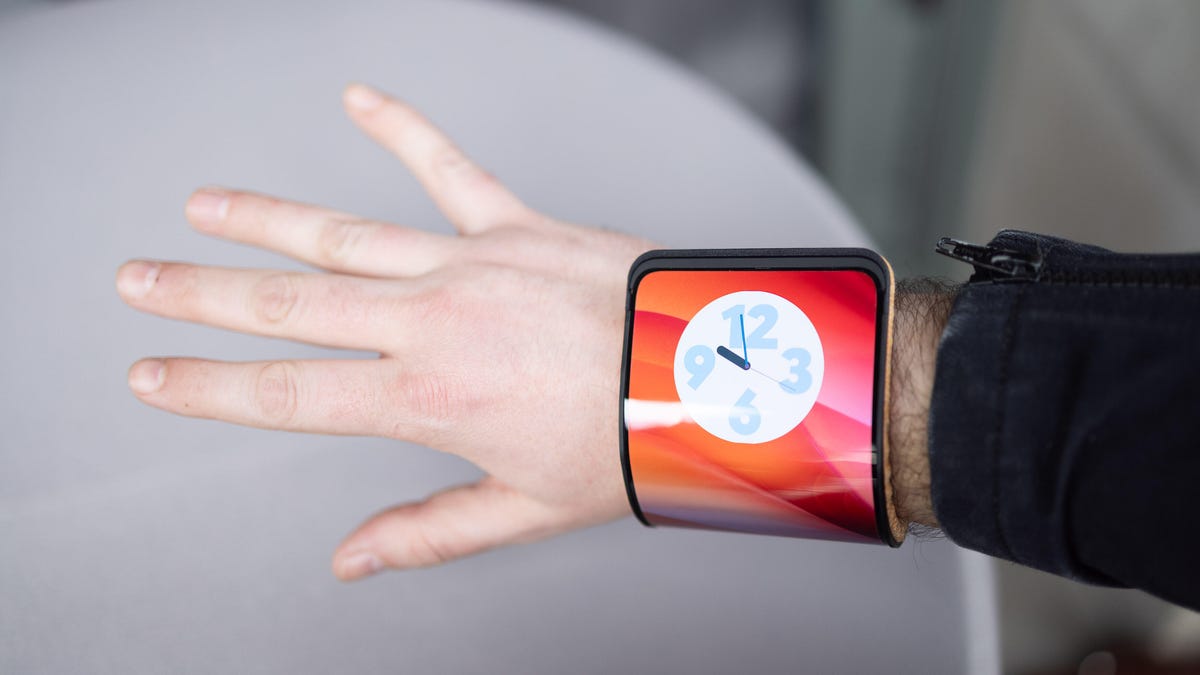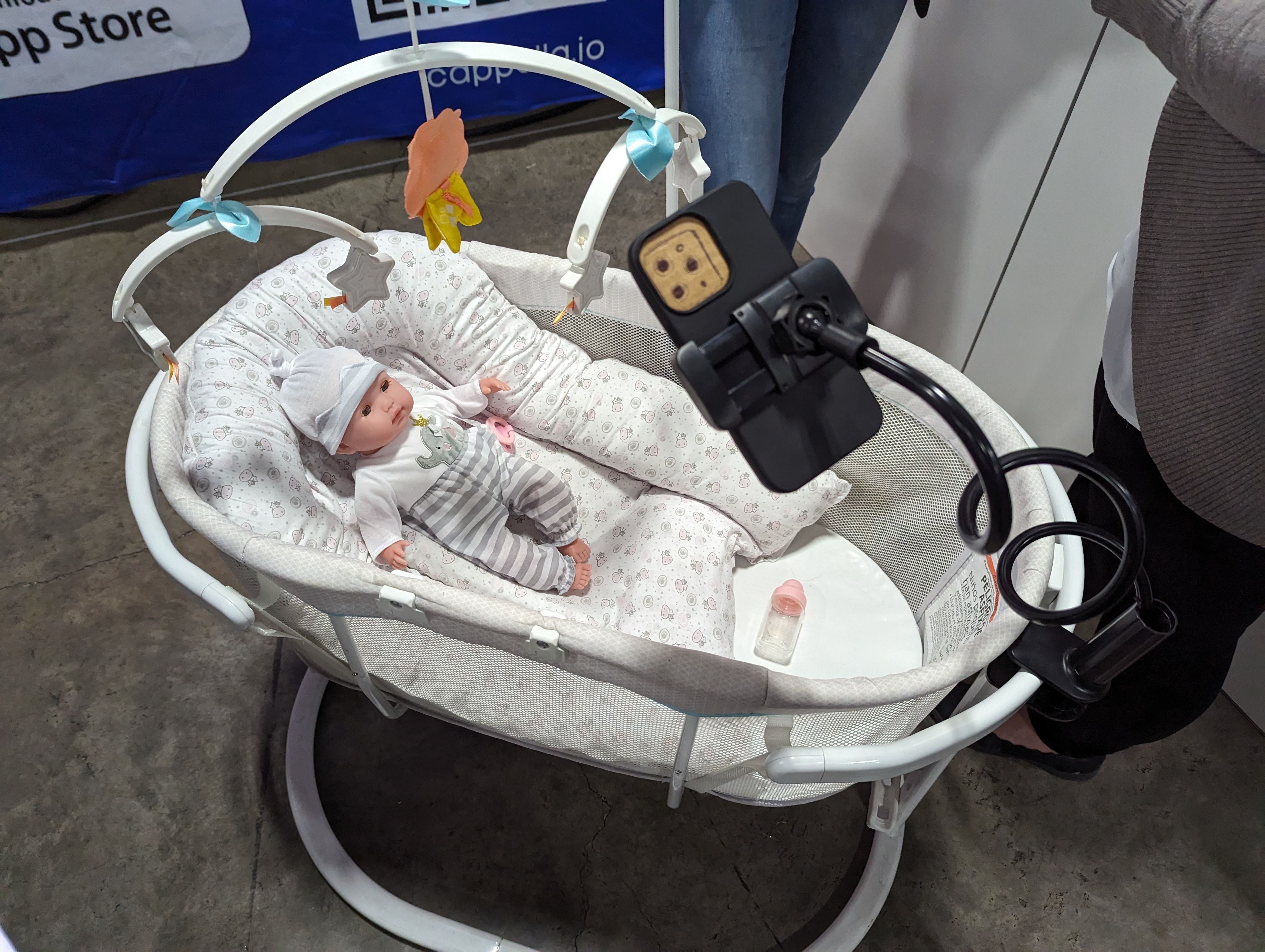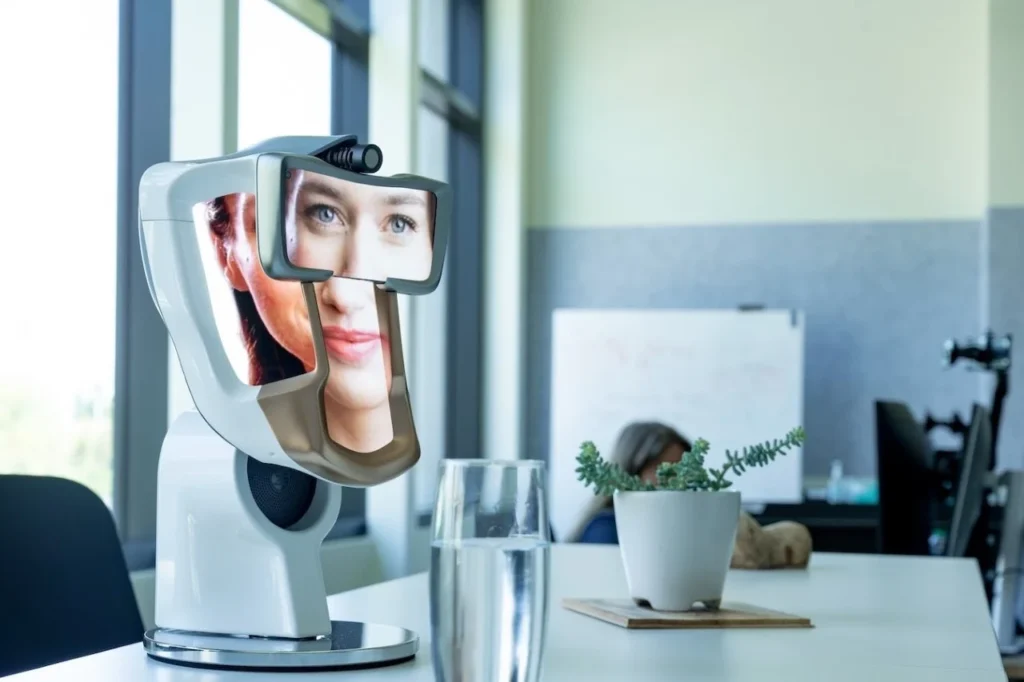As 2024 unfolds, the world of Artificial Intelligence (AI) continues to amaze and amuse with a slew of novel innovations. Over the past year, the technology has evolved along two distinct paths. While some products aspire to reach the apex of sophistication, others use peculiar features and humorous creativity to capture attention.
Here we’ve curated a selection of the past year’s funniest and quirkiest AI innovations to lighten the mood at the dawn of what promises to be an explosive year for AI products.
Flappie
One of the standout ventures of the year comes from the Swiss startup Flappie, which introduced an AI-powered automatic pet door designed specifically for feline companions. Integrating motion sensors, infrared cameras, and night vision capability, this automatic door adeptly detects when a cat attempts to enter with prey in tow.

Should a cat attempt such a feat, the door remains locked, barring entry with the critter. However, once the cat releases its quarry, the door opens straight away, permitting access. As Flappie asserts, their pet door integrates microchip detection, providing selective access only to registered family cats. Furthermore, users benefit from an app-based remote control system allowing them to manage the cat door from anywhere. For those who prefer, a manual switch offers direct control, including disabling the prey detection feature.
The AI system within the door boasts over 90% accuracy in identifying various cat breeds and prey species. Early results indicate that cats adjust over time, eventually learning to drop their catches before entering, which keeps homes cleaner. Users can also monitor their pets via images and videos captured through the app.
Seergrills
From across the channel comes the UK-based startup Seergrills with their Perfecta grill, tagged at $3500. Touted as the world’s first AI-driven grill, it combines speed and efficiency to deliver a professional chef-like experience.
The Perfecta might resemble an oven more than a traditional grill, with AI-managed infrared heaters flanking its sides for cooking steaks, chicken, fish, and other meats.

Users simply load the raw meat vertically into a cage and initiate the cooking cycle. The infrared heat embraces the meat from the oven’s sides at 1652ºF, completing the process within two minutes without needing to manually flip the meat. During this phase, vapors and gases are vented from the top while fats trickle down into a detachable tray, making the meal healthier with less oil contact.
According to the manufacturer, the Perfecta can grill three ribeyes in just 1 minute and 50 seconds, six hamburgers in 90 seconds, or four chicken breasts in 2 minutes and 30 seconds. “Simply tell the Perfecta your culinary desires, and it will have your meal ready in minutes, up to ten times faster than traditional methods, all while being 50% more energy efficient.”
Seergrills’ CEO, Suraj Sudera, explains that their AI, dubbed “aiChef,” uses sensor data coupled with user input cooking preferences and built-in recipes. The device gauges the starting temperature of meats and adjusts the duration and temperature to match user preferences. Once the meal is ready, users are encouraged to rate the meat quality to provide data that enhances the algorithm.
WeHead
2024 also saw the debut of WeHead, a smart 3D head device distinguishing itself from similar AI companions and desk robots. Comprising four 5.8-inch screens, WeHead can exhibit faces and emotive expressions.

It’s highly versatile, with a horizontal rotation of 320 degrees and a vertical pivot of 70 degrees, allowing for natural gestures and postures during user interactions. Equipped with a camera, speaker, and microphone, WeHead facilitates real-time visual and vocal exchanges.
WeHead tailors its appearance, voice, and etiquette to suit user preferences, continually learning whenever users personalize their avatars.
Moto’s Wearable Smartphone
In a groundbreaking reveal at the 2024 MWC, Motorola presented an innovative concept for a wearable smartphone. Sporting a 6.9-inch flexible FHD+ pOLED display with a centered punch-hole camera, it functions like a standard smartphone in straight-screen mode. Unlike typical devices, this product includes multiple hinges, enabling varying degrees of backward bending. Completely folded, it takes on an arch or tent shape, which can stand on desks or transform into a smartwatch using the accompanying magnetic strap.
The device further employs AI for situational awareness, automatically adjusting screen size or suggesting apps based on user scenarios and device fold conditions. Moreover, it changes themes according to daily attire.

Moomwalkers X
American firm Shift Robotics has released Moonwalkers X, a pair of AI-enhanced roller shoes. Equipped with six wheels per shoe compared to its predecessor’s ten, each shoe weighs less than a pound, optimizing user mobility and ease.

Incorporating AI technology, Moonwalkers X adapts to walking habits with 100 measurements per second, accelerating the walking speed. A 300-watt brushless motor powers the wheels, dynamically adjusting the pace according to sensor data, boosting walking speed up to 250% of normal. The device also automatically locks the wheels on detecting staircases, ensuring safety.
Targeting individuals who walk frequently, such as delivery personnel and warehouse staff, the Moonwalkers X enhances travel efficiency and eases the strain of walking.
Significantly, Moonwalkers earned a spot among Time’s “200 Best Inventions of 2023.” Although the notion of throngs of delivery workers speeding along the streets might seem futuristic, it’s certainly a convenient prospect.
Capella’s APP
In another trailblazing development, Capella introduced an application capable of “translating” baby cries into specific needs with an accuracy of up to 95%, far surpassing the human 30% success rate at interpreting what a crying baby wants.
Priced at $10 monthly, this app monitors a baby’s sleep patterns, feeding times, and diaper changes, granting parents a comprehensive understanding of their child’s routine and enabling better care.

Remini’s AI Clay Filter
The AI photo editing software Remini hit the headlines in 2024 with its Clay Filter, which saw a rapid rise on social media and frequently topped China’s iOS free download chart.
Users access the Clay Filter through the AI filters page in the Remini app by uploading any photo or video to be processed. The filter transforms the imagery into clay animation akin to Shaun the Sheep, producing delightfully ugly-cute results applicable to landscapes, objects, and portraits alike.

AI Binocular
Finally, AX Visio 10×32, a high-end AI-enabled binocular, was launched by a global leader in optical equipment and faux crystals. Priced at $4700, it includes a 13-megapixel camera, supports 1080P HD video recording, and has an 8GB internal storage capacity.

The binocular uses deep learning models to identify over 9000 species of birds, mammals, and insects. It combines GPS data for improved accuracy by filtering potential species in the user’s geographical vicinity.
Conclusion
Although these novelty AI products elicit smiles, they also hint at genuinely practical uses. While chasing odd trends is commonplace in tech updates, it’s unclear how long these products might last. Historically, few quirky concepts see widespread adoption, and even fewer enjoy longevity. However, it’s exciting to witness the surge of amusing and intriguing AI products, as a good idea is always worth pursuing. Who knows which of these might evolve into a household staple, enhancing quality of life in unexpected ways?


